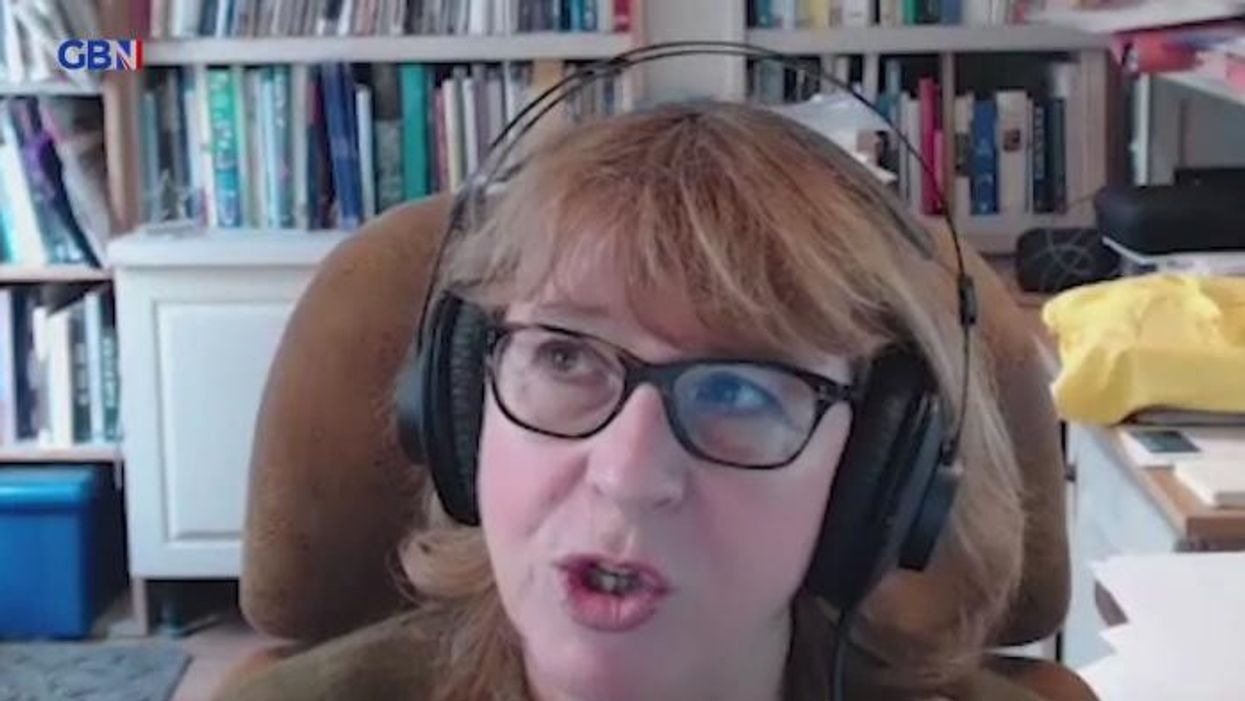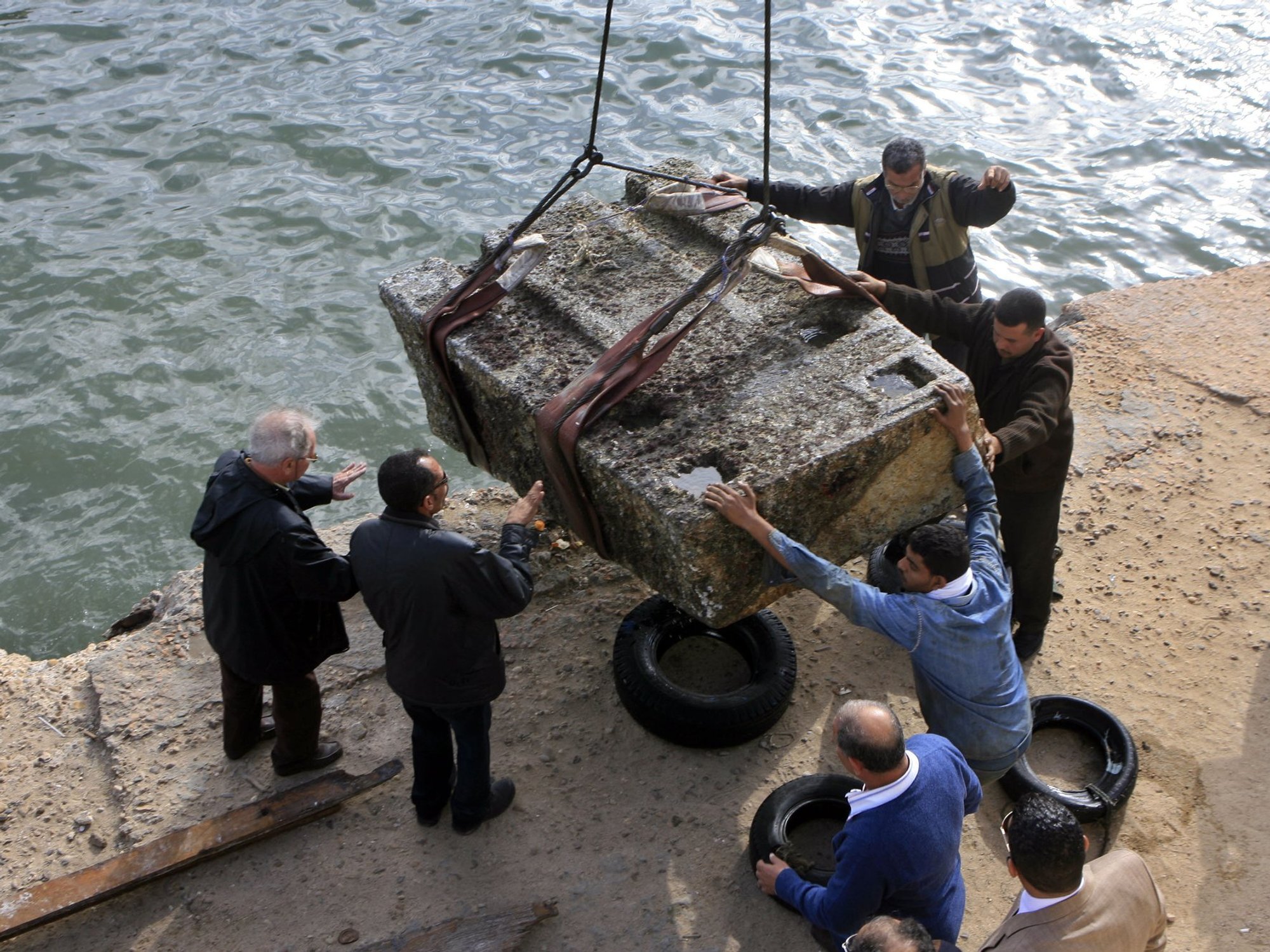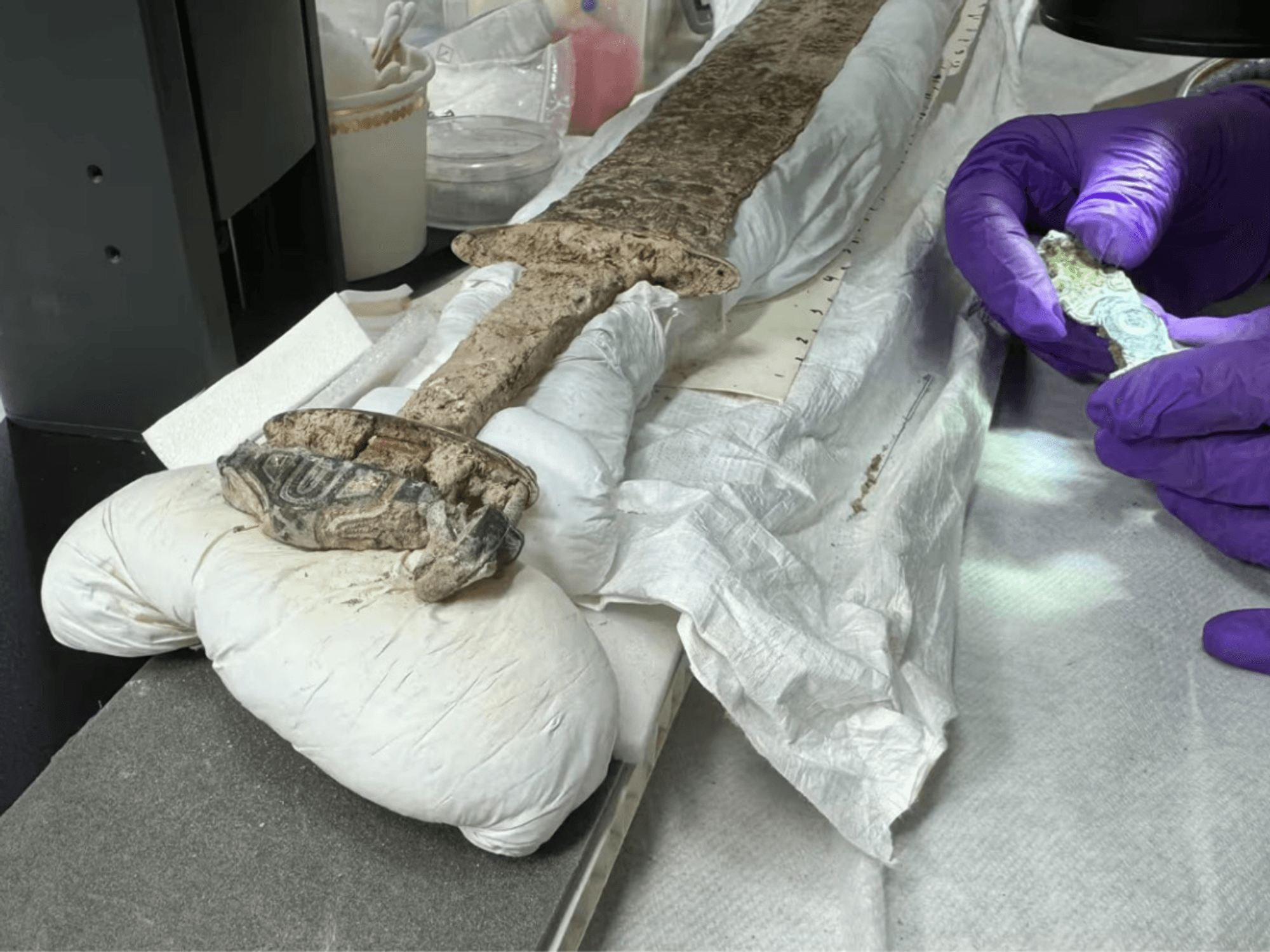GBN expat secrets - France: Rural France is a world away from London - 'I have 52 pets and pay for beer at the local bar with my chicken's eggs'

GB News is talking to British expats across Europe and the world who have spoken exclusively to reveal the best places to live, the tips and tricks when moving abroad and the potential pitfalls to avoid. This week, an expat in France shares her experience, what she has enjoyed and what shocked her when she first moved
Don't Miss
Most Read
Would Britons be happier living in the French countryside? One expat believes that if you're open-minded and prepared to embrace differences, "you'll love it".
Janine Marsh from Beckenham, London bought a house in France in unexpected circumstances and fell in love with the place (although there was a lot to adjust to). Some 20 years on the self-confessed "Francophile" couldn't be happier in her new life. She now runs The Good Life France, which gives insight into everything the country has to offer, complete with a magazine and podcast.
The expat spoke to GB News about what made her decide to relocate, the best - and worst - things about her new life, plus what really surprised her about France.
Around 20 years ago, Janine visited Pas-de-Calais with her husband and dad to buy wine and ended up purchasing a house on a whim. The sprawling property - which boasted 21 rooms - was very run down and cost less than a designer handbag, but Janine had a compelling urge to buy it.
After purchasing the property, she and her husband spent weekends camping out in their new place as a respite from their Monday to Friday slog in London. But one day they took the plunge and relocated full-time.
Janine has fallen in love with France since, but has found that her new life is a world away from her old one. Pas-de-Calais is, according to Janine, "authentic France at its best", brimming with "lush green valleys, enchanting fishing villages and wide open spaces".
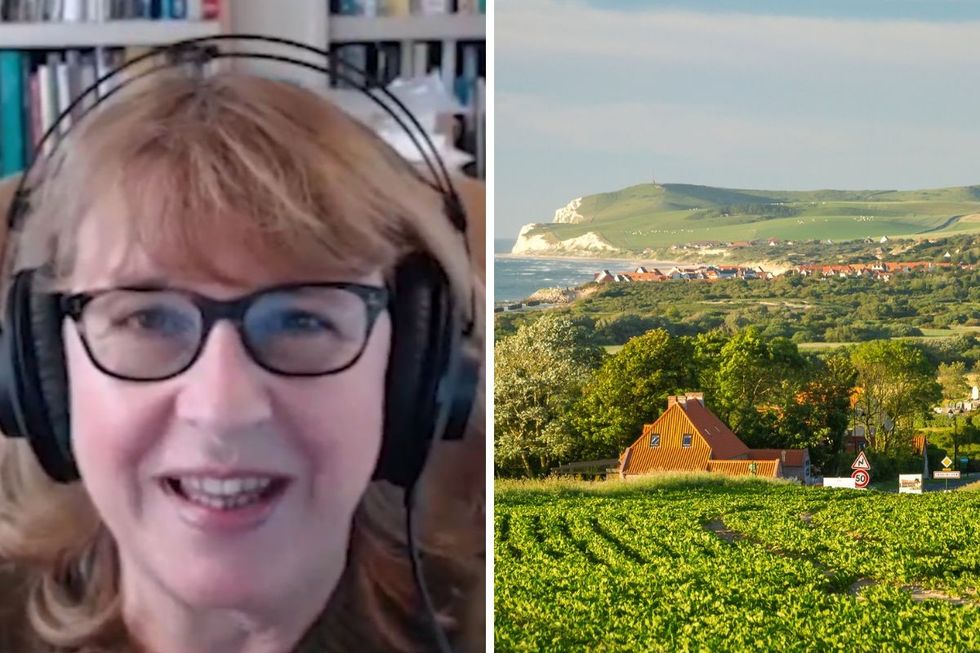
'If you're open-minded, pragmatic, and you accept that it isn't perfect and are not afraid to embrace the difference, then yeah, you're going to love it'
|Janine Marsh / GETTY IMAGES
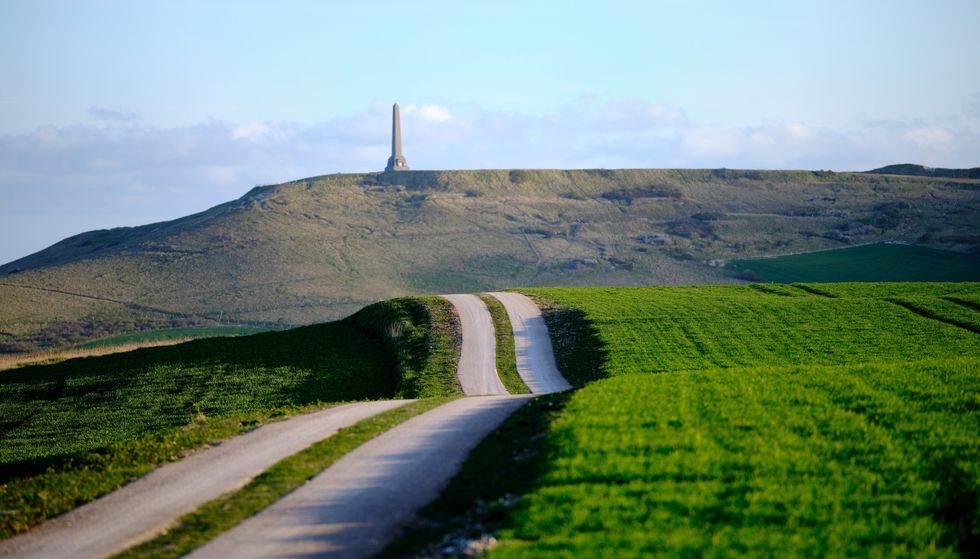
Pas-de-Calais is 'authentic France at its best' - think 'lush green valleys' and 'wide open spaces'
|GETTY IMAGES
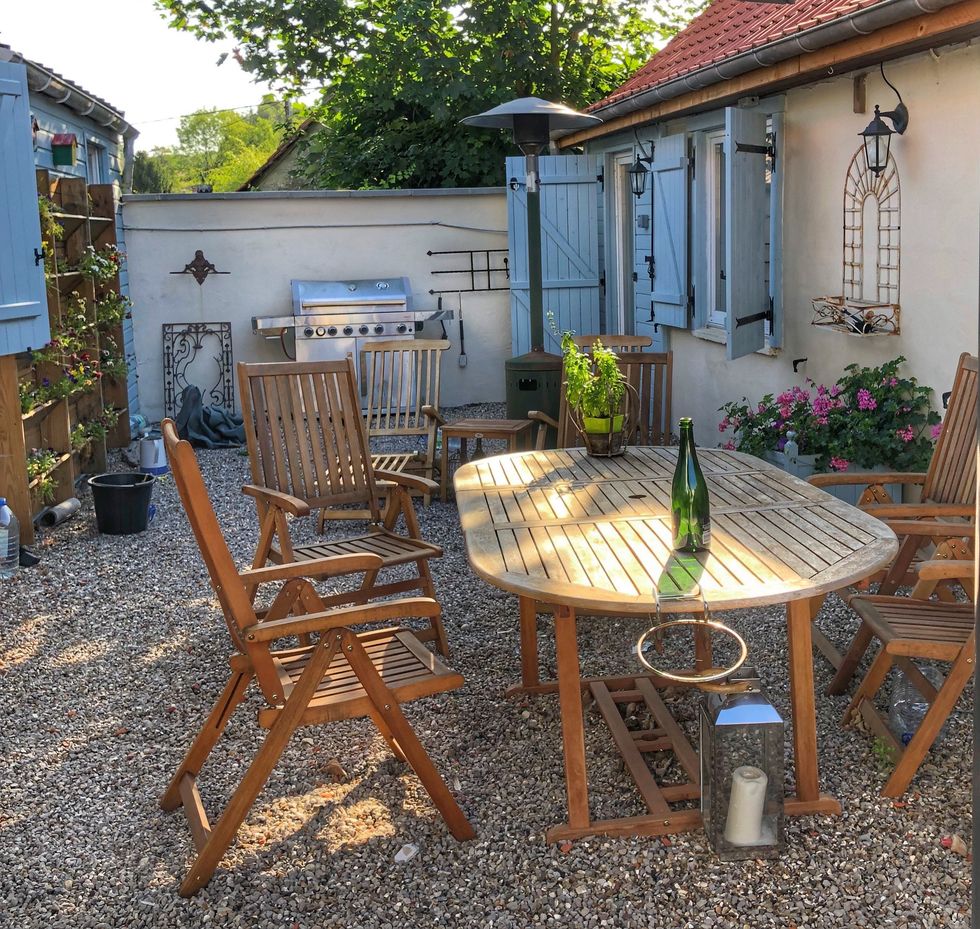
Janine loves her life in Pas-de-Calais, away from the hustle and bustle of London
|Janine Marsh
Moving over to picturesque Pas-de-Calais pre-Brexit was a relatively straightforward process for Janine. She told GB News: "I pretty much did six months in the UK, six months in France, and so on until Brexit happened, and then it was time to make a decision - so I chose France.
"The French government made it quite easy for us. We had to apply for a card, and then make it legal and official that we were living here because there are quite a few differences.
"I would say that the administration is quite onerous on the whole. And the big difference post-Brexit for people, of course, is that you have to have a visa to live here. I never had to do that. So it was quite easy for me.
"You could bring all your belongings out. I even brought a tree that my mum had bought me and that was fine. I know I was really lucky, but post-Brexit it's not quite so simple."
In her new life, Janine feels very taken care of when it comes to healthcare, which should be reassuring for Britons thinking of relocating.
She said: "My family tells me they can wait months for an appointment at the doctor or the hospital. If I phone my doctor in the morning, he apologises when he tells me I have to wait until the afternoon for an appointment. The French complain if they have to wait."
She explained the process of going to the doctor: "You pay a certain amount of money - I think it's €30 (around £25) now - then the state reimburses you 75 per cent of that and you pay the rest. So I pay about €5 or €6 to the doctor (around £4 to £5).
"But pretty much everyone here has a special insurance called Mutuelle, a top-up insurance, which then reimburses you 100 per cent and it's quite cheap, a couple of hundred euros a year. That also entitles you to things like private taxis to get to the hospital and private rooms in the hospital."
While the practicalities of moving were rather straightforward for Janine, and the healthcare system is very reassuring, she quickly had to get used to a very different lifestyle - which some Britons may find hard to adjust to.
Janine's day-to-day in Pas-de-Calais is far quieter than her old life in busy Beckenham. She revealed: "There are 895 communes in my department - basically tiny little villages of 100 - like in my village, there are only 150 people.
"I used to be quite shocked that in the evenings all the shutters would be shut and it looked like a ghost town. But this is a rural community, so farmers go to bed early, and that was quite a surprise.
"I think that if I had hankered after being able to buy a croissant in the morning quite easily or go to the local cafe for a drink after work, this would have been a very different experience for me." For this reason, Janine recommended that potential expats do their research before relocating entirely.
Residing in a rural area, Janine's way of life in France is a far cry from London living. She has 52 animals - four dogs, seven cats, chickens, ducks, geese, and a hedgehog - and she barters with neighbours.
The expat explained: "In the countryside, everyone grows their own food and we swap - we barter. I've got masses of apple trees that I inherited but I don't use all the apples. So two of my neighbours take the apples and make cider and then they give me some cider in return. I keep chickens, so I swap the eggs for beer at the local bar."
As for the people she barters with, Janine's neighbours are very friendly and community is extremely important.
She said: "You're often told that French people are aloof and they're not easy to make friends with - but I would say that's absolutely not true."
According to the expat, the French are very open with their affections. Janine observed that the people around her have a totally different way of greeting each other than the British. She said: "They never hug - they're just not big huggers - but they're big kissers, obviously.
"Men kiss, too. That's quite normal, especially if they're really good friends or family."
The constant kissing is something Janine had to get used to as a British expat in France. She revealed: "Even if you go to an office here, everyone kisses in the office. I'd never kissed anyone in my office before!"
Another big difference between Janine's life in France and her life in the UK is the food culture. She said: "Street markets are a way of life. Where I live there are no shops, no bars, no cafes - no anything in this village. But people can go to a street market every day of the week - and they do.
"They really, really support producers, growers, suppliers, direct suppliers here - it's not all about supermarkets. My 94-year-old neighbour has never even been to a supermarket."
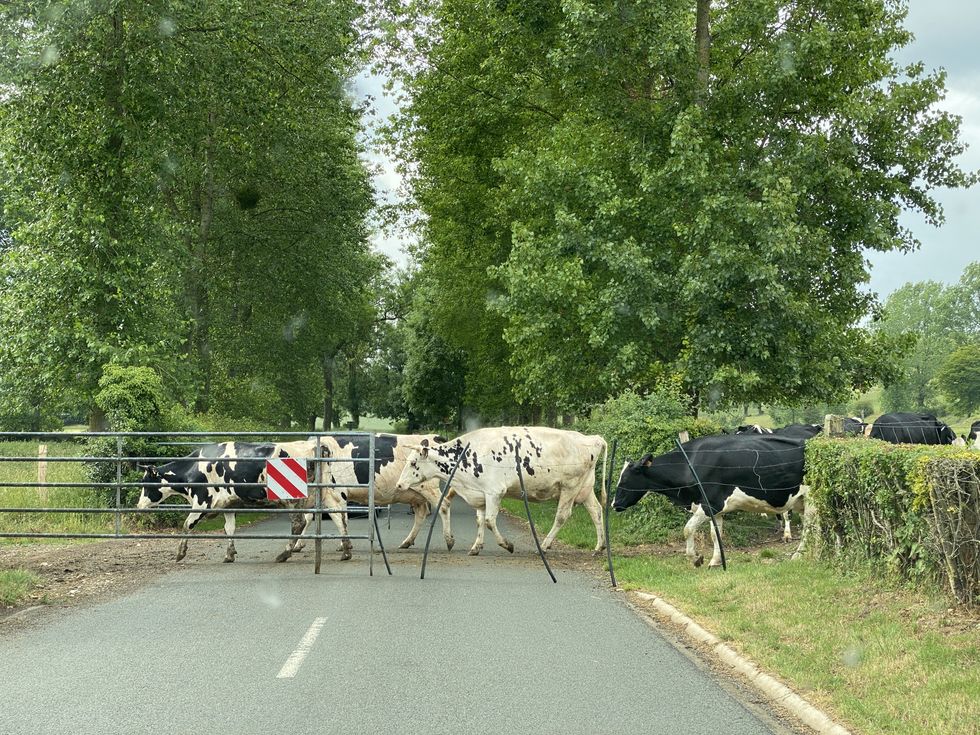
Janine is surrounded by animals - she even has 52 pets
|Janine Marsh
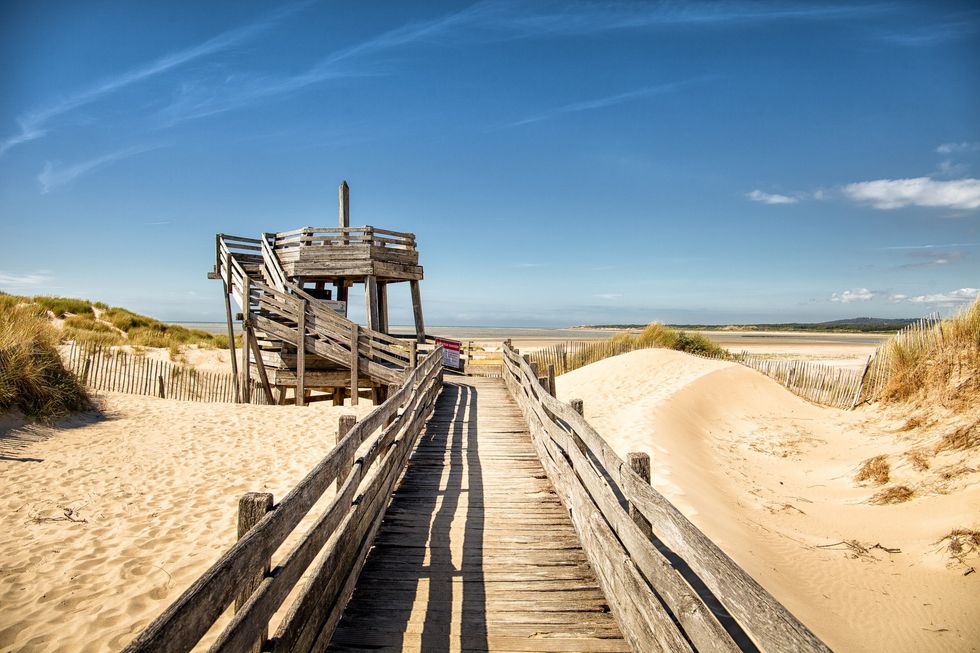
Pas-de-Calais offers picturesque scenery
|GETTY IMAGES
For Britons who are very used to their creature comforts - including their favourite local supermarkets - this could be quite the culture shock.
Britons may also be surprised at how much the French are prepared to pay for their food. Janine said: "I was quite shocked when I came out here that people were prepared to pay €10 (around £8.50) for a couple of slices of ham.
"But it was explained to me that you're paying for someone who has raised the pig by hand, and you will never taste this anywhere else quite like this - and they eat less of the ham and more of the cheap lettuce." She described it as a "completely different attitude towards the quality of food".
LATEST DEVELOPMENTS
And the attitude towards food in France clearly pays off, because according to Janine, the best part of living there is the delicious, home-grown produce - plus the wine.
She also loves the fact she's able to hop on a train and be somewhere vastly different to Pas-de-Calais in no time at all.
The expat said: "I live in the north of France, so the weather is pretty much like it is in the UK, which means it rains quite a lot. But just last week I jumped on a train and I got off in Paris, then hopped across to Gar de Lyon and I went to Nice. Then, when I got off the train, everyone was wearing T-shirts and people were sitting outside restaurants having lunch in the sun. It's like two different countries, and that is a really good thing about living here."
Janine also loves how close she is to the UK, and reassured expats that they won't need to forgo their relationships with loved ones back home if they do decide to take the plunge and move.
In fact, Janine sees her loved ones more now than she ever did. Because she spends her days working to her own schedule as opposed to the 9-5 London city slog, she has more free time to go back home - and it's only three hours door to door.
While Janine does love her life in France, she admitted that driving there is less than desirable - in fact, the "terrible drivers" are the worst thing about living in France.
She admitted: "They're awful. They always seem to be in a hurry and they love overtaking. They hate it when they're behind a British car. They just want to overtake all the time."
But despite the horrendous driving, life is pretty sweet, albeit different from the UK. When asked whether she would recommend France to other Britons, Janine said: "It's not for everyone and some people do go back because it doesn't work out for them because they find it very hard to learn French or to make new friends.
"But I think if you're open-minded, pragmatic and you accept that it isn't perfect and you are not afraid to embrace the difference, then you're going to love it here - especially if you love food and wine."
GB News also spoke exclusively to an expat in Spain about his new life. The 78-year-old suggested that Spain provides a paradise the UK just cannot compete with.
Moving to France
What you need to know
Many Britons hoping to relocate will be intrigued by the prospect of moving to France. However, before moving anywhere, it's important to know a few key things, such as how to purchase accommodation abroad and what to do about driving.
GOV.UK offered some guidance for Britons who want to purchase a property in France.
Post-Brexit, it is a more complicated process for Britons who want to move to France. However, immigration advisors can be on hand to assist you in the process. GOV.UK also provides crucial information for Britons who are considering the move, including what they need to know about visas and residency, healthcare in France, working or studying in France, taxes and pensions.
The real estate experts at iad Overseas outlined the three steps needed to buy a home in France. Firstly, they reassured Britons: "Despite Brexit, if you are a UK citizen you can still buy a property in France, either as your main home, holiday home, rental management or investment. If you plan to live in France as a resident and are considering buying property in France after Brexit, you will need to apply for tax residency."
The first step to finding your dream home in France is to do your research. Britons who want to start a new life with their family will have a different set of needs than those who relocate for work, so this must be taken into consideration. For those who are at retirement age, the experts recommended choosing areas with English-speaking communities.
The second step is completing the administrative processes involved with purchasing a property. Post-Brexit, British people legally residing in France will need to have a residence permit.
Thirdly, Britons will need to know the purchasing process. Britons will need to sign a written offer to purchase, then a promise to sell, then the deed of sale which is drawn up by a notary. The notary will charge a fee of around 10 per cent of the purchase price.
Britons buying in France will be required to put down a deposit (up to 10 per cent), and stamp duty (currently 5.8 per cent).
Alternatively, Britons can build their own house in France, a rewarding prospect, albeit more challenging. A real estate agent can advise Britons on how to buy land.
GOV.UK offered guidance for Britons who want to drive in France. Government guidelines read: "You need either a 1968 international driving permit (IDP) or a valid UK driving license to drive in France. The 1949 IDP is not accepted anymore. You cannot buy an IDP outside the UK, so get one before you travel.
"You can buy an IDP in person from some UK post offices - find your nearest post office branch that offers this service. You must be 18 or over to drive in France." Britons were urged to read the RAC France Guide for further information on driving in France."
To truly immerse yourself in a place, it's important to be able to hold a conversation in the native language. But it's particularly important in France, where meeting a minimum French language proficiency of Level A2 is required for non-European Union citizens if they want to apply for permanent residency.
Les ateliers FL, which teaches French in France, explained that someone with a Level A2 proficiency will be able to understand isolated phrases and common expressions that relate to areas of high personal relevance (like personal or family information, shopping, immediate environment, and work), and communicate during easy or habitual tasks requiring a basic and direct information exchange on familiar subjects. Using simple words, can describe his or her surroundings and communicate immediate needs.
It's possible to learn this basic level of French before you go. Watching TV in French (with English subtitles on), listening to French music, and downloading a language-learning app are all easy ways Britons can immerse themselves in French. For those willing to invest in their learning, weekly conversation classes are also a good idea.
Most popular place for British nationals
- Île-de-France
- Poitou-Charentes
- Aquitaine
- Midi-Pyrénées
- Brittany (one of the closes places to the UK)
Best places for retirees
- Western France (such as Creuse, Haute-Vienne, Charente, Vienne, and Dordogne)
- Languedoc
- Eymet (Dordogne)
- Callac (Côtes-d’Armor)
- Dorat (Haute-Vienne)
Why Britons choose to live in France
- Excellent healthcare system
- Delicious cuisine and wine
- Stunning landscapes and huge versatility across the country
- Excellent quality of life, including a healthy work-life balance and prioritisation of leisure and relaxation
- Huge British expat community
- Great location to explore other parts of Europe
Possible pitfalls
- Polluted cities
- Language barrier
- Bureaucracy can be arduous
- Lots of old housing that may lack proper insulation
- Frequent strike action
- A slower pace of life (good when you want to relax but not when you need something done urgently)


